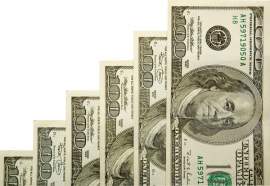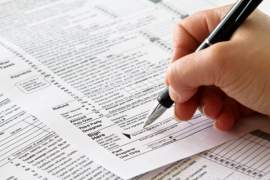
A Guide to Budgeting

What is budgeting?
Budgeting is the term used for keeping track of your financial status and using a number of resources to ensure that your are making sound financial decisions that will keep you from losing money, falling into bankruptcy and improving your net worth.
Budgeting can be difficult and in many regards require a great amount of discipline. All individuals who you would consider “rich” did so; not because they have high paying jobs, although that helps, but because they managed their budgets and income. Instead of spending their paychecks on short term, and material, benefits these individuals budgeted their income and invested their funds in assets that, over time, increased their wealth.
Budgeting does not make you wealthy over night and often it can take years, or decades, to realize that you careful financial planning has made you extremely well off.
Starting A Budget
The first step in making a sound budget to help your financial situation is to take make a financial plan. A financial plan is includes assessing your assets, liabilities, income and expenses.
When making a financial plan you will first want to accumulate all data concerning your assets. This includes bank accounts; real estate; all investments including stocks, bonds and mutual funds. When assessing your assets for the purpose of creating a financial plan there are a number of schools of though as to what should be included. Most analysts will tell you that your financial plan should include only those assets that you may liquidate at will, or on short notice. This includes cash in bank accounts, stocks, and mutual funds. Long term bonds that will only mature after a long period of time should not be considered in assessing your assets, neither should dividends from stocks. Because of the fluctuation in the stock market, when you are assessing the value of your stocks you should be cautious as to the value that you put on it. Your stock may be worth $10,000 today but market fluctuation may cause your stock to decrease in value to $5,000 very shortly and will render your financial plan inaccurate. When you compile all your assets you should divide them into those that are immediately available for liquidation at a known, fixed amount; and those that are long term investments that will be incapable of liquidation. Those that are not easily liquidated, or unable to liquidate, should be put to the side and forgotten about for the purposes of creating you budget and financial plan.
The second step in creating your budget, and financial plan, is to assess your liabilities. This includes credit card debt; mortgages; rent; expenses, both fixed and variable, taxes, and any other expected payments that you incur on a regular basis. When you are assessing your liabilities you should lump them into two categories. Those that are fixed liabilities and those that are variable. Fixed expenses are those that you know will maintain a constant, known, periodic expense. This includes your monthly rent, your mortgage, car payments and maybe your monthly tuition charge. These liabilities are fixed and you will know when and how much they will cost you. They are the simplest form of assessing your budget.
The variable liabilities are those that fluctuate from period to period. They are more difficult to assess in budgeting than when you are using fixed, known liabilities. Variable liabilities can include groceries; automotive repair; and utilities, especially when discussing the changing of the seasons. These variable liabilities, as well as interest bearing credit cards, are the forms of liabilities that are most readily able to be lowered and managed in increasing your net worth whereas fixed liabilities are constant and there isn’t really much that an individual can do to lower the amount that they must assess.
Once you have compiled a list of all your assets and liabilities they should be divided into increments based on your income. If you get paid on a monthly basis then those assets and liabilities should be divided on a monthly basis. This will allow you to calculate how much of your monthly worth; income from your job + interest bearing assets, are readily available to pay your expenses on a monthly basis. Once you assess your liabilities for the month, both fixed and projected variable liabilities, subtract them from your income. This will give you your net monthly income.
An important caveat to remember when planning your budget is to discount any expected return from your income taxes. If you are expected to have to pay the federal government when you file your income taxes that is definitely something that you should assess in your budgeting and plan for the worst in having to pay the local, state, and federal government. In contrast, when you are expected to get a tax rebate at then end of the fiscal year from the government this should not be included in managing your budget and should not be considered part of your yearly income. The best way to look at a tax return is not to. Forget it is a possibility. When you receive your tax rebate from the federal government it should be looked at in the same way you would look at an unexpected gift from your aunt. Tax rebates should be looked at as found money.
Dealing with debt
When you finally assess how much money you have coming in on a monthly basis it is time to assess your variable debt. The easiest variable debts to pay off are your credit cards. A sound budgeting plan will, no doubt, include paying off high interest bearing liabilities, especially credit cards. Credit card interest rates are some of, if not the highest interest rates you will pay and when you have a high balance on your card you are basically wasting money every month to avoid defaulting. If you have credit card debt and you are “in the black” at the end of the month after paying your expenses and assessing your costs for essentials such as groceries, utilities, and other necessities, your goal should be to take a certain percentage of that and pay off your credit card debt. It may take a period of time to get your balance down to zero but every month that you decrease your credit card debt you will have a lower monthly payment and therefore less expenses when you assess your monthly income. By paying off your credit card debt every month you should be finding yourself more and more in the black. As this happens you should be devoting more and more to the repayment of your credit card debt until it has a zero balance.
If you have numerous types of interest bearing debt you will want to sit down and assess the way that you should be managing that debt. All types of debt have different interest rates. Some, like credit cards, have high interest rates, whereas others, like student loans and mortgages have relatively low interest that is going to be stable over a long period of time. When you have these types of expenses it is important to attempt to pay off the high interest debt as soon as possible while, at the same time, meeting your obligations on your other forms of debt. If you have a debt that requires you to pay 10% interest per year you will want to try and eliminate that debt completely before you attempt to completely pay off a debt that is at 4% a year.
However, this is not cut and dry and you will want to think about investing as opposed to paying off the debt completely. Often times you will find investment opportunities that have an annual return on investment of greater than the interest rate on your debt. In these situations it is often a better budgeting plan to invest in the higher interest investment and make your scheduled monthly payments on your low interest debt. For example, if you owe $10,000 on a debt that accumulates interest on a monthly basis of 4% a year you will be paying interest of $33 ($10,000 x .04 / 12). If you were to take $10,000 of your money and invest it in an fixed interest bond that has a 5% yearly return then your monthly income from that investment would be $41.50 ($10,000 x .05 / 12). In this regard you would realize a greater benefit, $8.50 a month, from investing the $10,000 than in paying of the debt.
Maintaining your budget
Once you have assessed your financial situation and have eliminated, or begun to eliminate, your variable, and unnecessary debt it is time to plan for future wealth and prosperity.
Making your budget and financial plan is often the easiest part. Where it gets difficult is in the management and discipline in maintaining your budget. Once you have assessed your assets, liabilities and you have come to a conclusion on how much money you have left over for investing, incidentals, necessities, etc. you need to stick to that budget.
With the amount of money that you have left you should set a plan. You should have a percentage of that money set aside for investing, another percentage set a side for entertainment, another set aside for groceries and other necessities, and yet another set aside for unexpected costs such as automotive repair. You should not deviate from your plan. Its very easy for someone to come up to you and say, “hey, this band is in town” and you will compromise your budget for the sake of immediate gratification. Stick to the plan and in the long term it will help you.
An important aspect in maintaining your budget and your discipline is to set a goal for yourself. Money is just a figure and doesn’t really correlate with incentive to budget and save. For this reason you should set a reward for yourself. For example, if you are able to save $10,000 by the end of the year you should reward yourself with a $2,500 vacation. You should set this goal at the beginning of your budgeting and, unlike having your goal just to save money, it will inspire you and give you motivation. It is also better in that you will see a light at the end of the tunnel instead of a constant, repetitiveness. Your budget goals should be realistic. Do not expect that you will be able to save $10,000 if in order to do that you will have to eliminate all pleasures from your life, live off of bologna sandwiches, and use one ply toilet paper. Live within your means but allow for some leeway so that budgeting is not a chore. The best way to destroy your budget plan is to set your goals too high and lose interest at the first sign of adversity.
You must stay focused on the future. You will not realize gains from budgeting immediately and you may not even have any real gain after a year or two but it will happen if you budget accordingly.
NEXT: Budget





















